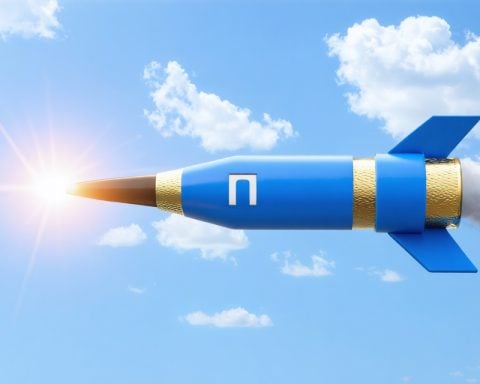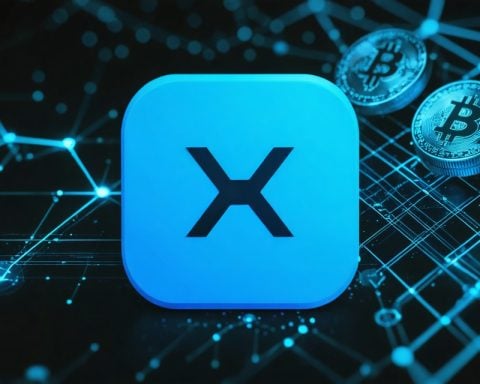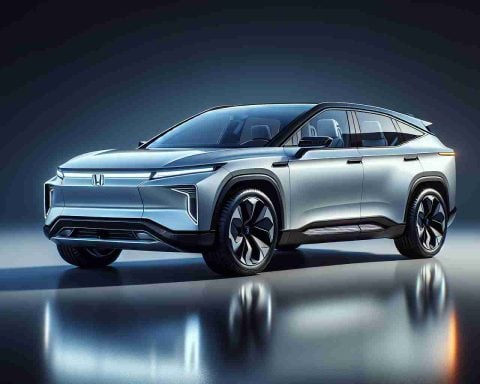- D-Wave Quantum Inc. and Staque have unveiled a hybrid-quantum application for autonomous farming vehicles.
- The technology optimizes the movement of farming machinery, enhancing efficiency and productivity in large-scale agriculture.
- D-Wave’s stock has surged by 210% over the past year, highlighting its impact on the industry.
- Quantum computing addresses complex agricultural variables with remarkable speed compared to classical computing methods.
- Benefits include increased crop yields, sustainable practices, and reduced operational costs through quantum-optimized tools.
- This breakthrough will be showcased at World Fira 2025 and D-Wave’s Qubits conference.
- Quantum technology in agriculture promises a sustainable future by empowering smarter cultivation and resource conservation.
Picture vast fields swarming with intelligent machines, each one choreographed to perfection. This is no longer a distant dream but a burgeoning reality, as D-Wave Quantum Inc. partners with Staque, an innovative force in AI and blockchain, to unveil a cutting-edge hybrid-quantum application. This breakthrough promises to fine-tune the movements of autonomous farming vehicles on an unprecedented scale, mesmerically gliding through lush landscapes.
D-Wave, already basking in a dazzling 210% stock surge this past year, is redefining the rhythm of agriculture. As classical computing strains against the kaleidoscope of variables in modern farming, quantum computing strides in, offering solutions in the blink of an eye. This new technology dances through complex routing challenges, formulating strategies that once took days or weeks within mere moments.
Floating on the horizon, this application promises to electrify the World Fira 2025 event alongside D-Wave’s own Qubits conference. Imagine the possibilities: increased crop yields, greener practices, and leaner operational costs, all within the grasp of quantum-optimized tools. In a domain where every yield counts, this is more than just a technological marvel; it’s a promise of sustenance and sustainability for generations.
As machines with quantum core processors rev into action, they bring with them a new dawn for agriculture, empowering farmers to cultivate smarter, conserve resources, and illuminate a path to a more verdant future. In the words left unspoken, the message is clear: embrace the future, where quantum potential springs to life from every seed sown.
Revolutionize Farming with Quantum Computing: What You Need to Know!
How Quantum Computing is Reshaping Agriculture
Quantum computing is emerging as a revolutionary force in agriculture, promising to address complex problems with unprecedented speed and efficiency. Through the collaboration between D-Wave Quantum Inc. and Staque, this cutting-edge technology will drastically improve the efficiency of autonomous farming vehicles. This advancement is poised to transform farming operations on a global scale.
How-To Steps & Life Hacks for Implementing Quantum Solutions in Farming
1. Assess Farm Needs: Evaluate the specific areas of farming that could benefit from quantum computing, such as route optimization, resource management, or predictive analysis.
2. Pilot Programs: Start with small-scale pilot programs to test the effectiveness of quantum applications in your farming operations.
3. Hybrid Systems: Leverage hybrid quantum-classical systems to solve complex problems that classical computing alone cannot address.
4. Stay Updated: Follow advancements in quantum computing and attend relevant conferences like World Fira and Qubits to stay ahead of the curve.
5. Infrastructure Upgrade: Invest in technology infrastructure capable of supporting quantum applications, such as advanced sensors and communication networks.
Real-World Use Cases
– Route Optimization: Quantum computing can optimize the paths of autonomous vehicles in real-time, reducing fuel consumption and time spent on tasks.
– Predictive Maintenance: Analyze data to predict equipment failures before they occur, minimizing downtime and repair costs.
– Efficient Resource Allocation: Georeferencing data and quantum algorithms can optimize the distribution of water, fertilizers, and pesticides, enhancing sustainability.
Market Forecasts & Industry Trends
The global quantum computing market is expected to grow at a rapid pace, with agriculture being a significant beneficiary. According to MarketsandMarkets, the quantum computing market could reach USD 1.76 billion by 2026, with applications in agriculture driving part of this growth due to the need for efficient resource use and automation.
Pros & Cons Overview
Pros:
– Speed: Solves complex problems faster than traditional computers.
– Efficiency: Reduces waste through optimized resource use.
– Sustainability: Enhances environmentally friendly farming practices.
Cons:
– Cost: High initial investment for quantum infrastructure.
– Complexity: Requires specialized knowledge to implement effectively.
– Security: Raises new concerns about data protection and privacy.
Actionable Recommendations
– Early Adoption: Engage with quantum computing developments early to gain competitive advantage and receive ROI on early-stage investments.
– Invest in Training: Educate farm managers and IT staff on how quantum computing can be integrated into current operations.
– Collaboration: Partner with tech companies and research institutions to access cutting-edge expertise and technology.
Quick Tips
– Stay informed by subscribing to relevant quantum computing newsletters.
– Use simulation tools to anticipate how quantum solutions could impact your specific agricultural challenges.
– Calculate the potential ROI of implementing quantum solutions on your farm before committing.
For more information on how quantum computing can impact various industries, visit D-Wave Quantum and Staque.
Embrace the future of agriculture with quantum computing and witness a transformation towards smarter, more sustainable farming practices!


















